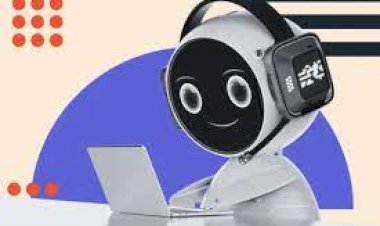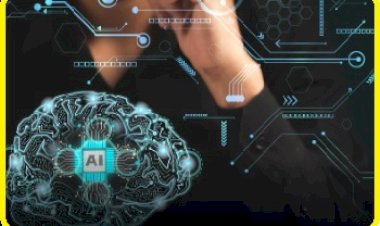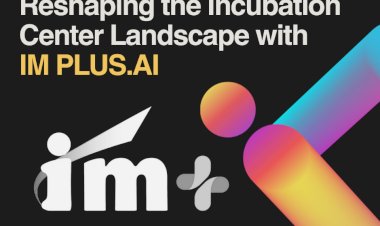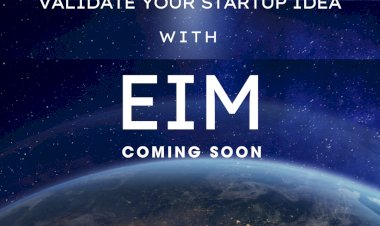AI impacts on Human Resource Digitalization in Industry 4.0
AI revolutionizes HR by automating tasks like resume screening and scheduling, saving time for strategic initiatives. Data-driven analytics predict workforce needs, guiding recruitment and retention strategies. AI chatbots enhance employee experience with instant support and personalized guidance. Ethical frameworks are crucial to address concerns like data security and algorithm bias in AI integration.
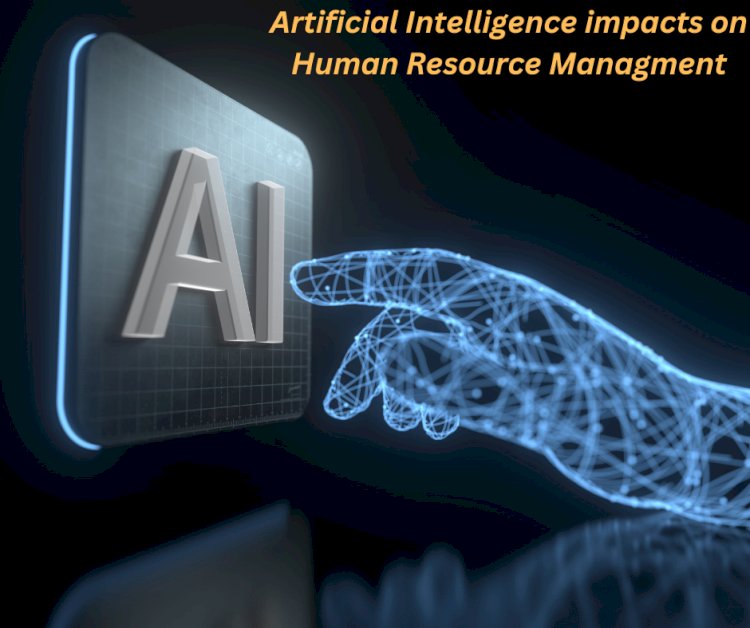
Introduction:
In the era of Industry 4.0, HR serves as a crucial bridge between technology and human resources. While technology is automating many traditional HR tasks, there's a rising demand for adaptable HR functions to manage evolving challenges. Technology enhances HR agility by enabling quick and seamless processes. Agility, embraced by tech giants like Google, Apple, and Amazon, means adapting HR to swiftly respond to unpredictable changes. This adaptability is key for developing individuals and processes to support organizational strategies amid rapid technological shifts.
As an HR or Learning and Development (L&D) professional, agility means driving employee engagement and retention in line with company objectives. HR Agility is crucial in dynamic environments where standardization is challenging. For organizations to achieve agility, the focus must shift towards customer satisfaction and delivering value. This transformation requires empowering HR to be responsive to evolving technologies and business needs, attracting and retaining top talent. In agile organizations, HR continues core functions like recruitment and performance management using agile methodologies. HR agility encompasses quick issue identification, faster response development, and integrating analysis and design thinking for effective programs.
The integration of AI into HR processes is rapidly changing traditional practices, impacting areas such as productivity, safety, payroll, comfort, and feedback. Understanding these effects is vital for enhancing organizational efficiency and effectiveness. Research aims to explore the correlation between AI and HR digitization, examining their impact on organizational network analysis and design. Objectives include assessing AI's influence on productivity, safety, payroll automation, comfort, and real-time feedback. By achieving these goals, the study seeks to provide insights and recommendations for leveraging AI to enhance HR processes and organizational performance.
The Role of AI in HR Digitalization:
Recruitment and Talent Acquisition
AI-powered tools are revolutionizing the recruitment process by automating resume screening, analyzing candidate profiles, and identifying top talent more efficiently. AI algorithms can match candidates to job requirements based on skills, experience, and cultural fit, thereby improving the quality and speed of hiring.
Employee Onboarding and Engagement
AI-driven chatbots and virtual assistants are being used for onboarding new employees, answering common queries, and providing personalized training recommendations. This enhances the employee experience and accelerates the integration of new hires into the organization.
Performance Management and Analytics
AI technologies enable HR teams to analyze employee performance data and identify patterns or trends using predictive analytics. This helps in predicting future performance, identifying high-potential employees, and optimizing workforce planning strategies.
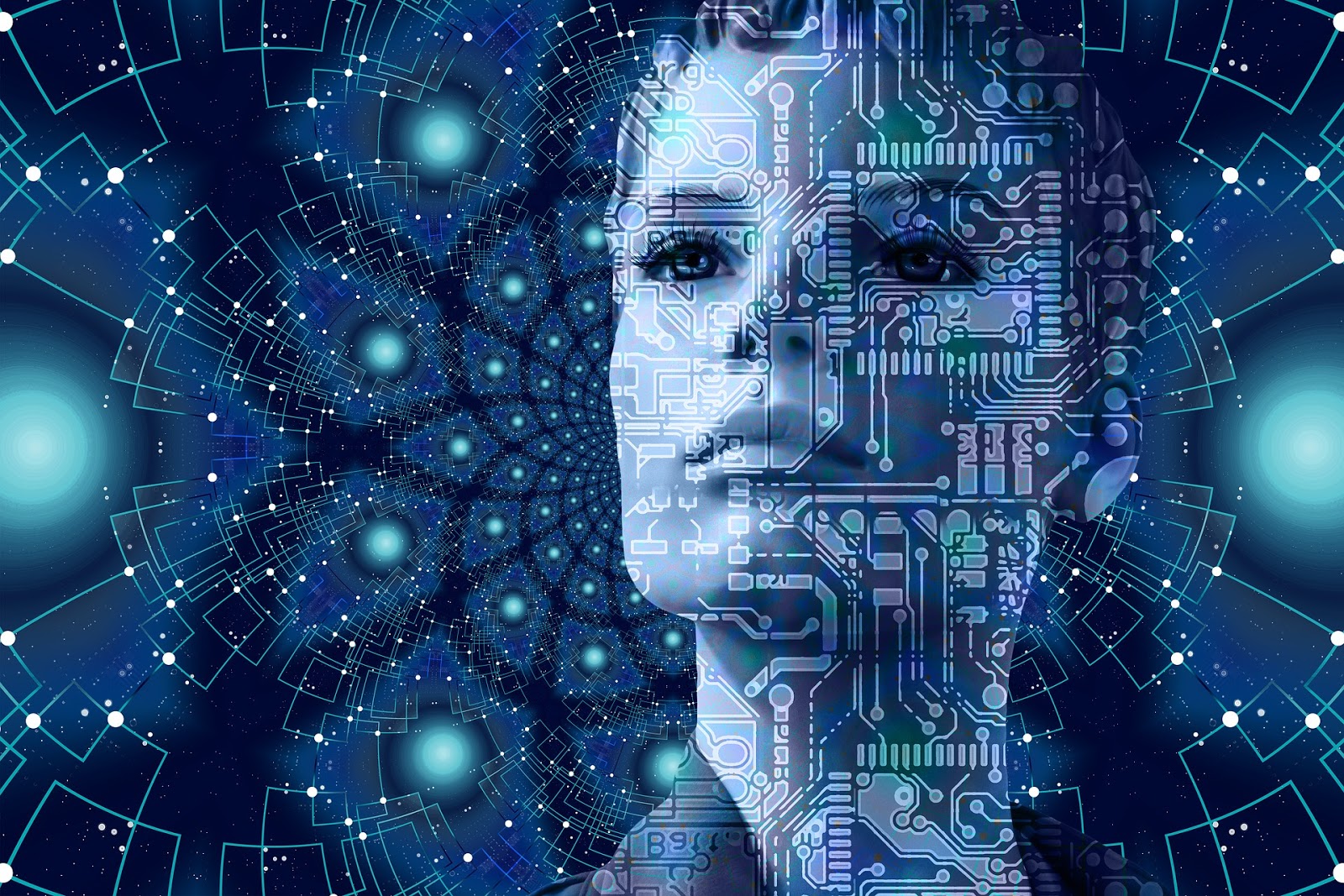
Benefits of AI in HR Digitalization:
- Efficient Talent Acquisition: AI streamlines the recruitment process by automating candidate sourcing, resume screening, and initial assessments. This saves time for HR professionals and ensures a more efficient selection of qualified candidates.
- Improved Candidate Matching: AI algorithms can analyze large volumes of data to match candidates with job requirements based on skills, experience, and cultural fit. This enhances the quality of hires and reduces the likelihood of mismatches.
- Enhanced Employee Onboarding: AI-powered chatbots and virtual assistants can provide personalized onboarding support to new hires, answering questions, delivering training materials, and facilitating a smoother integration into the organization.
- Data-Driven Decision Making: AI enables HR professionals to analyze workforce data more effectively, identifying trends, predicting future needs, and making data-driven decisions to optimize workforce planning and talent management strategies.
- Personalized Learning and Development: AI systems can recommend personalized learning paths and training modules based on individual employee skills, preferences, and performance data. This fosters continuous learning and skill development.
- Improved Employee Engagement: AI tools can analyze employee sentiment and engagement levels through surveys, feedback, and social interactions. This helps HR identify areas for improvement and implement targeted initiatives to boost employee engagement.
- Enhanced Employee Experience: AI-driven HR systems streamline administrative tasks such as payroll, benefits management, and leave requests, improving the overall employee experience by reducing paperwork and increasing efficiency.
- Bias Reduction in Decision Making: AI can help mitigate unconscious bias in HR processes by standardizing evaluation criteria and anonymizing candidate data. This promotes fairness and diversity in hiring and performance evaluations.
- Predictive Analytics for Retention: AI can analyze employee data to predict retention risks and identify factors influencing turnover. HR can then implement proactive retention strategies to reduce attrition rates and retain top talent.
- Cost Savings and Efficiency: By automating repetitive tasks and optimizing processes, AI reduces the need for manual intervention and minimizes errors, leading to cost savings and increased operational efficiency within the HR function.
Challenges and Considerations:
- Data Quality and Privacy: AI relies heavily on data, and ensuring data quality, integrity, and privacy is crucial. Organizations must have robust data governance practices in place to handle sensitive employee information ethically and securely.
- Algorithm Bias and Fairness: AI algorithms can inherit biases present in training data, leading to unfair or discriminatory outcomes in HR processes such as recruitment and performance evaluation. It's essential to continuously monitor and mitigate bias in AI systems to ensure fairness and equity.
- Skill Gaps and Change Management: Adopting AI technologies requires upskilling HR professionals to leverage these tools effectively. Organizations must invest in training programs to bridge skill gaps and facilitate a smooth transition towards AI-driven HR practices.
- Integration and Compatibility: Integrating AI solutions with existing HR systems and processes can be complex. Compatibility issues, data silos, and interoperability challenges may arise, requiring careful planning and collaboration between IT and HR teams.
- Ethical Use of AI: AI applications in HR raise ethical concerns regarding employee surveillance, consent for data usage, and transparency in decision-making. Organizations must establish ethical guidelines and frameworks for responsible AI deployment in HR practices.
- Employee Trust and Transparency: Employees may have concerns about AI replacing human roles, job security, and the fairness of AI-driven decisions. Building trust through transparent communication about AI's purpose and limitations is essential for successful adoption.
- Regulatory Compliance: AI in HR must comply with relevant laws and regulations governing data protection, privacy, and anti-discrimination. Organizations need to stay updated with legal requirements and ensure AI applications adhere to compliance standards.
- Human Oversight and Decision-Making: While AI can automate tasks and optimize processes, human oversight is essential to interpret AI-driven insights, validate decisions, and intervene when necessary. HR professionals should maintain control over critical decisions and maintain a human-centric approach.
- Cost and Return on Investment (ROI): Implementing AI in HR requires significant investments in technology, training, and infrastructure. Organizations need to assess the ROI of AI initiatives and prioritize investments based on strategic objectives and business needs.
- Cultural and Organizational Change: AI adoption entails cultural shifts within organizations, including acceptance of technology-driven HR practices and new ways of working. Change management efforts are crucial to overcome resistance and foster a culture of innovation and continuous improvement.

Emerging Trends
Artificial Intelligence (AI) continues to revolutionize human resource (HR) practices, enabling organizations to optimize talent management and enhance employee experiences. Several emerging trends are shaping the future of AI in HR digitalization:
- HR Analytics and Decision Support: AI-powered analytics platforms offer real-time insights into workforce trends, enabling data-driven decision-making in areas such as workforce planning, succession management, and performance optimization.
- Augmented Decision-Making: AI augments human decision-making by providing data-driven recommendations and predictive insights. HR professionals leverage AI to make informed decisions that optimize talent strategies and drive business outcomes.
- Remote Work Enablement: AI supports remote workforce management by facilitating virtual collaboration, monitoring productivity, and promoting employee well-being through AI-driven wellness programs.
- Emotional Intelligence AI: AI technologies are evolving to recognize and respond to human emotions, enhancing employee interactions and improving workplace dynamics.
- Continuous Innovation and Adoption: HR departments are increasingly adopting emerging AI technologies such as natural language processing (NLP), sentiment analysis, and predictive modeling to stay competitive and agile in the evolving digital landscape.
Conclusion
In conclusion, the impact of artificial intelligence (AI) on human resource (HR) digitalization in Industry 4.0 is profound and multifaceted. AI technologies are revolutionizing HR practices by automating administrative tasks, optimizing talent acquisition and management, and enhancing employee engagement and performance. The integration of AI enables HR professionals to make data-driven decisions, improve workforce agility, and respond effectively to the dynamic demands of the digital age. However, ethical considerations such as privacy, transparency, and algorithm bias must be addressed to ensure responsible and equitable use of AI in HR practices. Ultimately, AI-driven HR digitalization in Industry 4.0 holds the potential to reshape organizational dynamics, elevate employee experiences, and drive sustainable business growth in the era of digital transformation.

 Yati Garg
Yati Garg 







